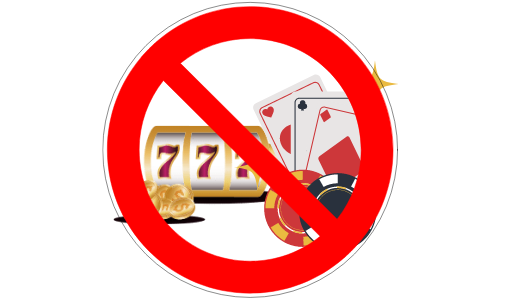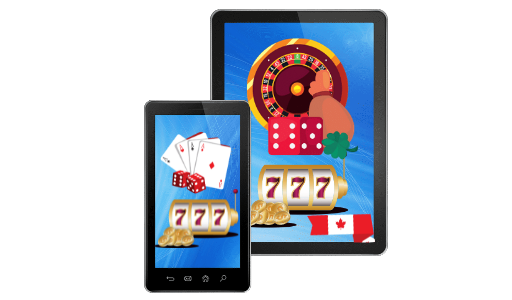Don’t miss a single bonus
Subscribe to our newsletter and find out first about the safest casinos and games with the best bonuses
There is something to be said about learning the history of gambling in Canada. No matter what opinion you might have about the impact of gambling on people and society, there is no denying that gambling has been an integral part of the growth and proliferation of many societies around the world, and the multi-billion dollar industry that it has created has no intention of going away any time soon.
This is why this is the topic of this article. strap in for a short but comprehensive dive into the history of gambling in Canada, where we will observe its many colourful quirks and see the major milestones that made the Canadian gambling industry into what it is today.
Since Time Immemorial: The Beginnings of Canadian Gambling
True to our comment at the beginning of this article, the beginning of real money gambling in Canada just so happens to be traced all the way back to the beginning of Canada itself.
Even before European explorers have landed on the shores of the New World, gambling has been a part of the societies made by the many hundreds, if not thousands of indigenous tribes in the North American continent. These tribes, which are now referred to as the First Nations, played one of the earliest and most primitive forms of gambling in recorded history.
These early games vary slightly between each region—that is, tribes in the area that is now Canada and the ones further south - but they are generally referred to as “stick games” or “bone games,” simple guessing games that wagered meat, materials, or equipment. (Fun fact: these games are still being played today by these First Nations tribes.)

With the arrival of explorers from the Old World, the games of chance that were already widely popular in Europe were brought into the new continent along with them. In particular, gambling games involving dice and cards (some examples include Hazard and Cribbage) set much of the foundation for the modern Canadian gambling scene that would eventually take root and flourish.
The Criminal Code of Canada and Gambling’s "Dark Age"
Gambling games became fairly widespread among the colonies in Canada that we established after the first major Western landing by explorer John Cabot at the turn of the 16th century. However, this would take a bit of a turn when the colonies were merged under a single banner to become the country of Canada in July 1867.
The most notable development to this end was the establishment of the Criminal Code of Canada in 1892, which expressly banned most forms of gambling in the country except for pari-mutuel betting on horse races and other highly specific and restrictive exceptions. These laws were mostly mirrored from similar statutes enacted earlier in countries back in Europe, and fell under the section called “Offenses against religion, morals and public convenience” in this early version of the Code.

Naturally, this didn't sit well with gamblers, with the nationwide ban forcing them to seek out shadier methods of getting their gambling fix. As you can probably imagine, this would give way to a lot of underground gambling operations and a substantial amount of crime surrounding this. the government of canada would eventually loosen some of these tight restrictions, as in the case of an amendment passed in the early 1900s allowing games of bingo and lotteries to be held for charitable and/or religious purposes.
Sparking the Wildfire: Loosened Gambling Restrictions in the 21st Century
For much of Canada’s history as a full-fledged nation, laws on gambling restrictions have mostly stayed the same as they have since the establishment of the Criminal Code in 1892.
However, the situation would change dramatically with the amendments made to the Criminal Code in 1969. While the amended Code did more or less retain all of the restrictions that it had previously, the key change was giving the provincial governments the authority to conduct lotteries in their jurisdictions, as well as writing and enacting their own laws to license and regulate gambling as they saw fit.
It was this expanded authority given to provincial governments that effectively opened the floodgates for new casinos in Canada to flourish, although at this point in time there have not yet been many such developments. Arguably the most significant gambling endeavour to come out of this new law was Loto-Québec, the provincial crown corporation tasked by the Quebec government to regulate the industry as well as establish what would be Canada's first major chain of land-based casinos.
While these developments were a step in the right direction, bringing the vast majority of gambling into the realm of legal acceptance, it did not have quite the same amount of impact on the growth of the industry as the event that would come next.
The Wildfire Spreads: The Birth of Online Gambling
As the 1900s came to a close, the world ushered in a brand new era. Digital technology and computers were becoming more accessible and were finding their way into people’s homes. More importantly, the Internet would actually become fast enough to be usable by people who had the means to use it, and soon enough, an entirely new world of infinite possibilities was opened up through the World Wide Web.
And on the World Wide Web, a few crafty programmers and early web designers would, at around the same time, develop and launch what would become the first online gambling games and platforms in the world. Names like Microgaming casino, International Game Technologies, and NetEnt casino were a few of the names that established their foothold in the early days of the online gambling industry and looking at them now, it is relatively safe to say that their efforts have paid off.
Now, it is important to understand that, from a legal standpoint, online gambling sits in a bit of a grey zone. As we have covered earlier, the last major change to Canadian law with regards to gambling was all the way back in 1969, a time when the internet was still a distant concept. As such, most online gambling activities were technically considered legal because of the fact that there was no law explicitly stating that it was illegal.
For most of the modern era, this was the rather tenuous state of gambling legislation in Canada.

The Present and Future of Canadian Gambling
Based on the title of this concluding section, however, the state of gambling laws in Canada continues to change to this day. One of the most recent developments in gambling legislation was the nationwide loosening of sports betting regulation, allowing single-event betting in addition to the pari-mutuel betting that was established previously.
Seeing its vast potential, some provinces in Canada have also taken to embracing online gambling. The most notable example is the opening up of regulated online gambling in Ontario, with casinos and bookmakers able to acquire licenses to operate in the province in 2022.
Although gambling in Canada has had a colourful and fascinating history so far, it is important to remember that history continues to write itself, and we will continue to enjoy gambling as it grows and evolves further.
